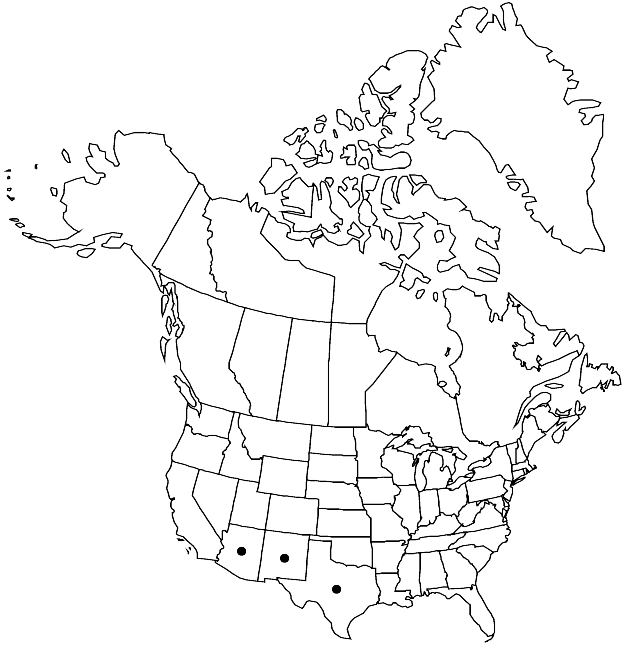Platygyrium fuscoluteum
Rev. Bryol. 37: 49. 1910.
Plants relatively large, yellowish-brown. Stems with branches elongate, creeping, loosely foliate, never julaceous, straight. Leaves homomallous, somewhat plicate, 1.3–1.6 mm; margins conspicuously recurved proximally; apex abruptly slenderly acuminate; medial laminal cells 50–65 × 5–6 µm. Specialized asexual reproduction rare, by brood branchlets, inconspicuous on branch apices. Seta 1–1.3 cm. Capsule cylindric, nearly symmetric to distinctly asymmetric, 2–2.5 mm; operculum slenderly long-rostrate. Calyptra 2–2.5 mm. Spores 18 µm.
Phenology: Capsules mature Feb.
Habitat: Montane forests, old logs, stumps, tree trunks, damp boulders, rock faces, shaded banks
Elevation: moderate to high elevations (1300-2800 m)
Distribution

Ariz., N.Mex., Tex., Mexico
Discussion
Platygyrium fuscoluteum is distinguished by its glossy yellowish brown creeping plants bearing usually homomallous leaves with long slender apices on elongate branches. Microscopically, the often somewhat plicate leaves with recurved margins and quadrate alar cells make the species easy to recognize. Platygyrium fuscoluteum is not sympatric with P. repens. Brood branchlets are much less conspicuous and much less common than in P. repens, but can often be found by careful search; they are rather effectively concealed in leaf axils at the branch apices. Homomallium mexicanum often co-occurs with P. fuscoluteum and could be mistaken for it. However, the capsule of Homomallium mexicanum is curved and constricted below the mouth, and the leaves are imbricate (not homomallous), have erect margins, and are not plicate.
Selected References
None.